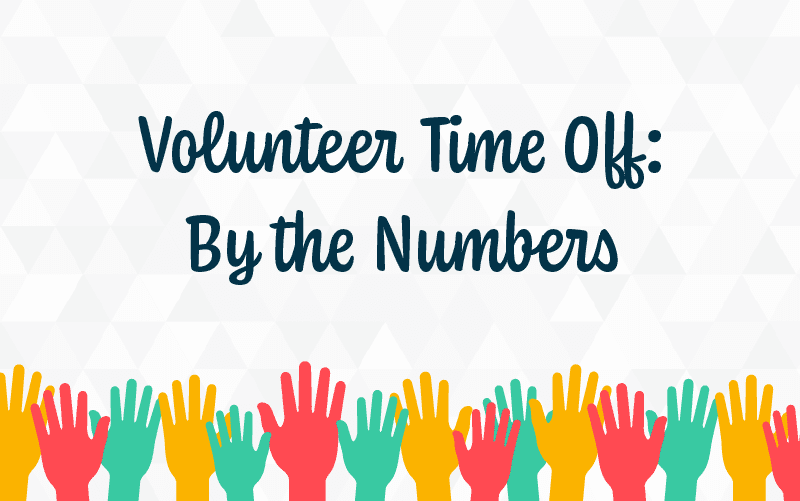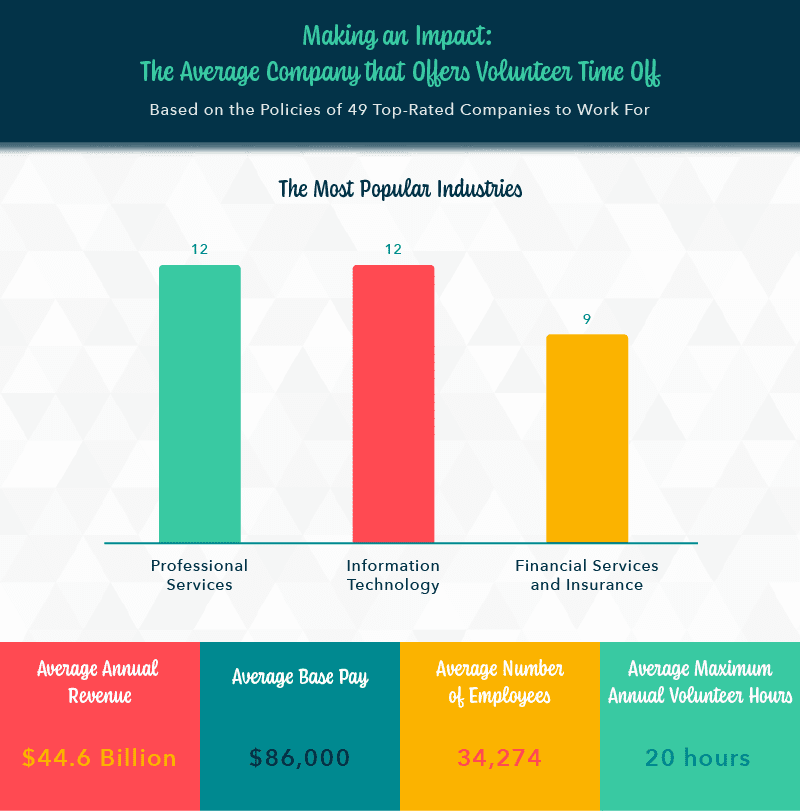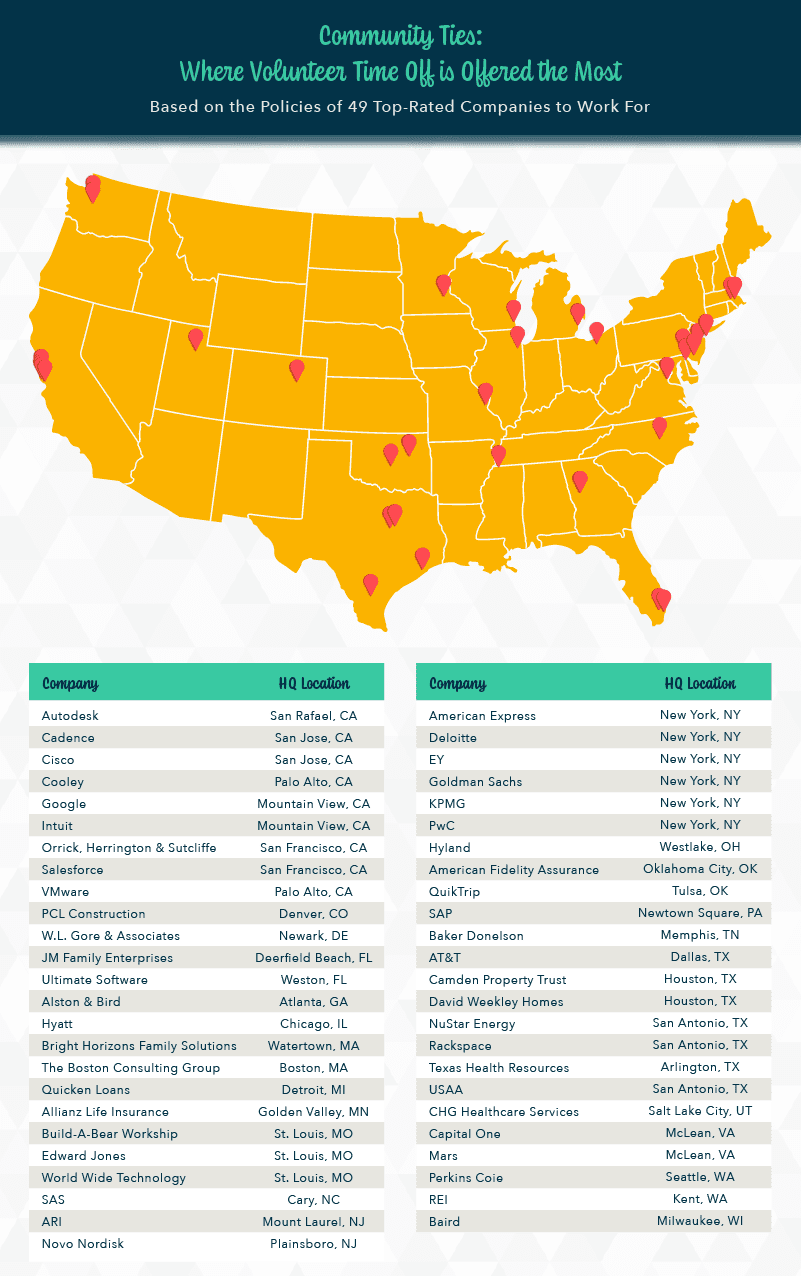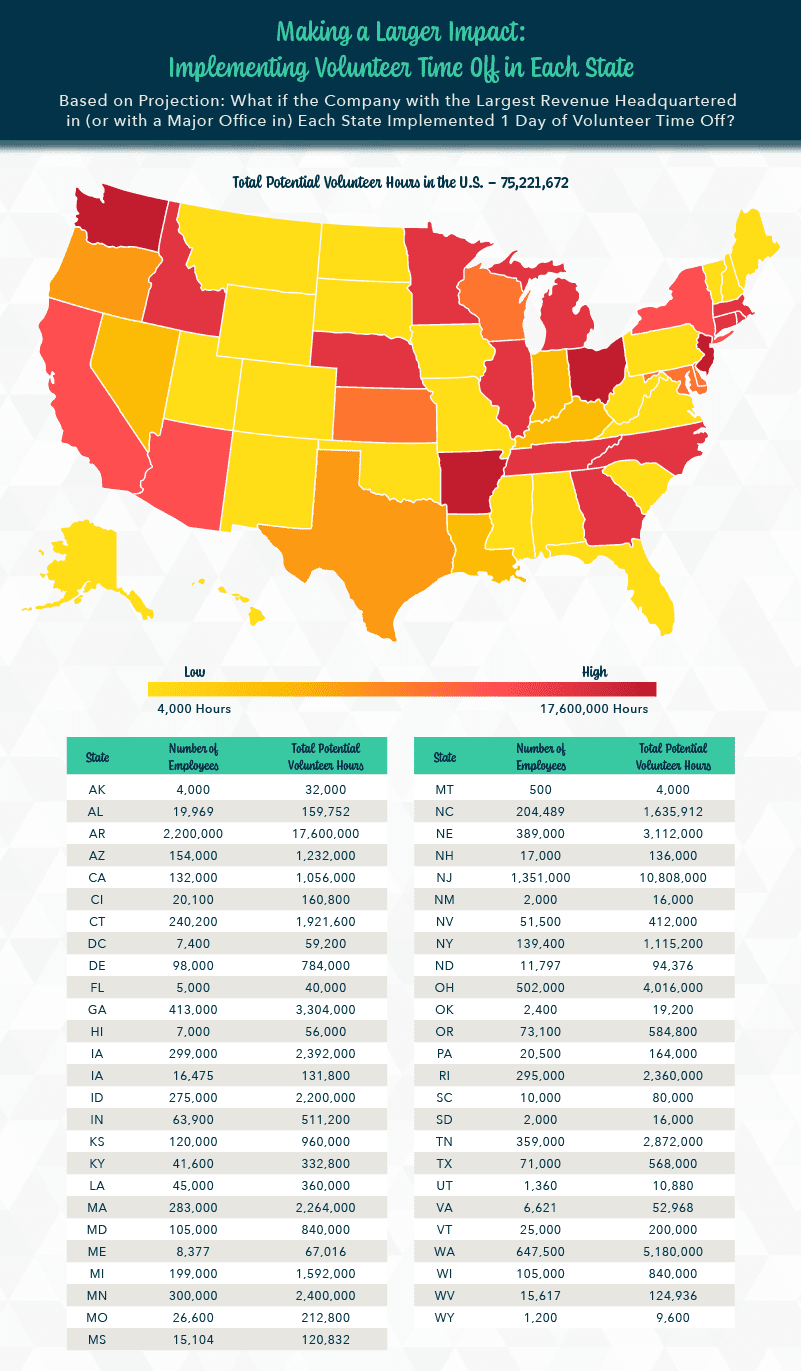
At United Way of the National Capital Area, we are committed to the world-changing force of corporate social responsibility. For example, we recently partnered with Salesforce to help businesses leverage the power of social impact through the Salesforce Philanthropy Cloud.
What is Volunteer Time Off?
One of the major corporate social responsibility programs a company can implement involves encouraging its employees to volunteer in the community. This can come in the form of an employee benefit known as Volunteer Time Off, or VTO for short, which is when an organization offers paid days off for its employees to volunteer their time and support nonprofit causes they care about.
Why are VTO Hours Beneficial for Companies?
Offering VTO hours is just one way to engage employees with their communities. According to a 2017 Glassdoor survey, 75% of Millennials expect their employer to participate in social good, either with donations or through volunteering. Additionally, 51% of workers expect their employers to allocate work time and resources for their employees to volunteer for social causes.
In response to such demand, corporate social responsibility programs are offering volunteer time off at an increasing rate. In 2018, 65% of companies offered paid-release time volunteer programs, according to CECP. That figure increased by 4% from 2017.
In light of these facts, our team at United Way NCA decided to conduct a comprehensive look at VTO in the United States. To do so, we dove into multiple characteristics of VTO programs that already exist at major U.S. companies, and quantified the scope of impact that these programs have on the communities around them.
Methodology
We analyzed the VTO programs of 49 companies rated “the best to work for” in order to analyze trends in the programs, as well as the demographics of the companies that offer them. We then projected out how many volunteer hours would be made possible if the largest company in each state implemented one work-day of VTO.
Below, we have pulled out relevant findings into visualizations. At the bottom of this post is our entire data study available in interactive tables. Read on to discover our findings!
The Most Popular Industries Offering VTO

First, we took a look at the demographics of 49 large U.S. companies that offer VTO hours. We wanted to get a better sense of what kind of workplaces offer this benefit to their employees.
Of these companies, 12 (or about 25%) were in the professional services industry, and 12 were in the information technology industry. Nine companies were in the financial services and insurance industry. The average annual revenue of these companies is a total of $44.6 billion, and their average base pay for employees is about $86,000.
Finally, when taking a look at their volunteer paid time off policies, we uncovered that the average maximum number of volunteer hours offered per year to each employee is 20 hours. That is about two and a half days of time off to volunteer.
Where Volunteer Time Off Is Offered the Most

This map displays the location of each of the 49 companies’ headquarters. Since offering VTO directly impacts the community surrounding the headquarters by encouraging the company’s employees to volunteer, we thought this would be a unique look at this benefit.
The majority of companies that offer VTO are headquartered in New York, NY and in or around Silicon Valley, CA. Given the nature of the industries represented, this is probably to be expected, but we were interested to learn the prevalence of the benefit in San Antonio, TX, Houston, TX, and St. Louis, MO, to name a few.
In fact, Houston ranks 10th on a list of cities where citizens are most likely to volunteer, a list that is primarily missing from the above map. To us, this is a wonderful opportunity for companies headquartered in the above-linked cities to engage their employees in a meaningful way.
Implementing Volunteer Time Off in Each State

Our research into VTO had us asking the question: what would volunteering look like on a national scale if it was regularly offered at more companies?
To answer this, we decided to conduct a projection, where we looked at the total volunteer hours that would be made in a scenario where the largest company (by revenue) headquartered or with a major office in each state implemented one day (or eight hours) of VTO. The results were fascinating to see.
The above heatmap demonstrates the sheer volume of volunteer hours that would be made possible if even one company in each state implemented a VTO policy. In total, that’s over 75 million hours, or over 9 million days spent volunteering.
Data
Here is the compiled data of the 49 companies we analyzed, their demographics, and their volunteer time off policies. This data table is interactive – click on the headers to organize the data by category, or search for the data point you need.
We also calculated three projections to get a sense of their policies on a larger scale: 1. how many total volunteer hours their policy makes possible (maximum volunteer hours x number of employees); 2. the cost to the company to provide the benefit (maximum number of volunteer hours x the companies’ average hourly wage x number of employees); 3. the value the benefit produces (assuming that 1 hour of volunteering is worth $25.43, as reported on by Independent Sector).
Here is the compiled data of the largest company in each state and the projections we calculated for their “hypothetical VTO programs,” following the same methodology outlined above.
Conclusion
At United Way of the National Capital Area, one of our favorite things to do is partner with companies to provide volunteer opportunities to their employees. We are appreciative of policies such as Volunteer Time Off that makes these collaborations possible, and we know the other organizations that are involved with them feel the same way.
Of course, even if your employer does not enact VTO, there are plenty of ways to volunteer for your community. Find out ways to get involved with our organization and impact your community in a way that works best for you.



